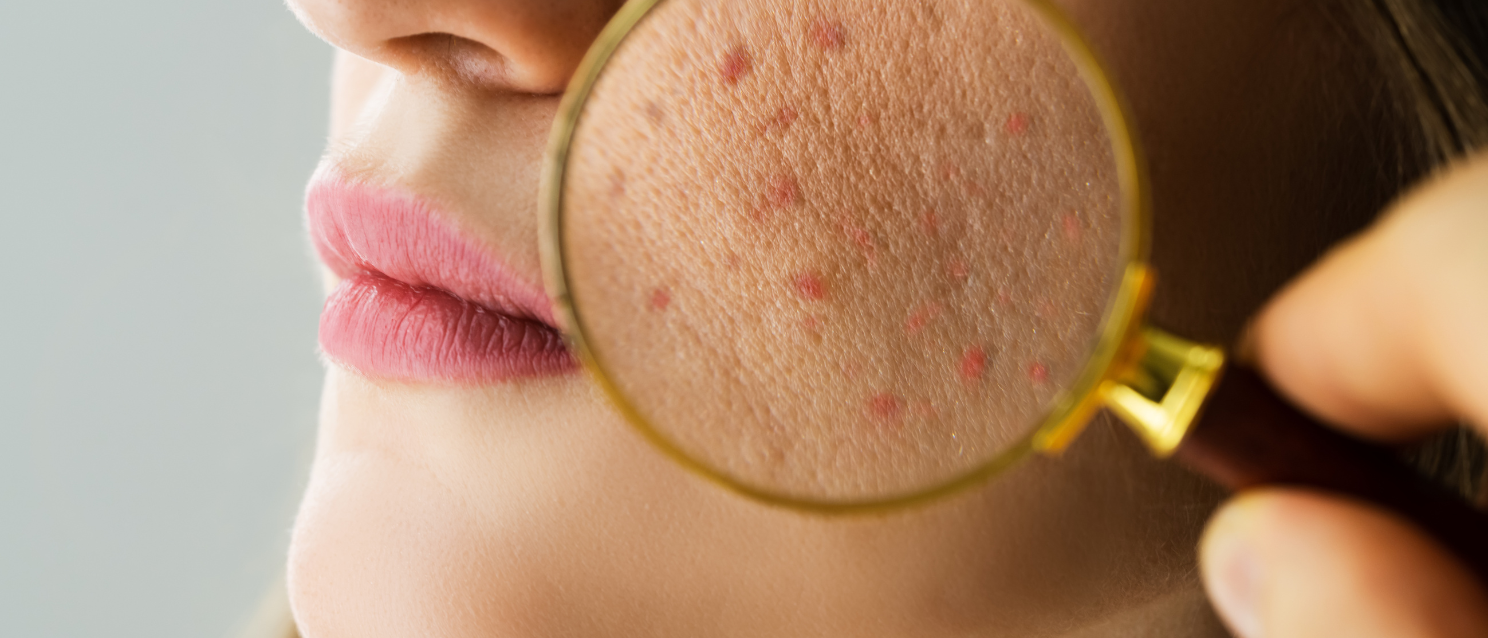Common Skin Disorders Linked to Skin Microbiome Imbalance

Would you like better skin?
Most people are aware that the skin is our body's largest organ and is our first line of defense against anything harmful in our environment. You may not know however that our skin is home to a complex and dynamic community of microorganisms that is referred to as the skin microbiome. This ecosystem plays a huge role in maintaining skin health, protecting against pathogens, and in our immune responses.
When the balance of the skin microbiome is disrupted - a state referred to as dysbiosis - it can weaken the integrity of the skin's structure and compromise its barrier function, leading to a condition called "leaky skin." This then allows harmful substances to penetrate the skin, which can result in various dermatological disorders.
Understanding the Skin Microbiome
The skin microbiome consists of a large variety of bacteria, fungi, viruses, and mites that coexist symbiotically on the skin's surface. When in harmony, these microorganisms contribute to:
- Barrier Protection - their presence takes up space and prevents colonisation by harmful organisms.
- Immune Regulation - by interacting with the skin's immune system, they help to manage inflammatory responses.
- Skin Homeostasis - they aid in maintaining the skin's pH and moisture levels.
All kinds of things can influence the healthy function skin microbiome like age, genetics, environmental exposures, diet, and lifestyle. Disruptions in this delicate balance of microorganisms can impair the skin's structural integrity, leading to increased permeability - AKA Leaky Skin - and susceptibility to illness and skin conditions.
When the Skin Barrier is Compromised: Leaky Skin
Leaky skin refers to a compromised barrier function resulting from microbiome dysbiosis (imbalance). When the microbiome is not in harmonious healthy balance, it can weaken the junctions between skin cells, making the skin more permeable to external irritants and pathogens. This increased permeability can manifest as:
- Trans-Epidermal Water Loss (TEWL) - Elevated TEWL leads to dehydration, dryness, and increased sensitivity.
- Inflammation - The penetration of harmful substances can trigger inflammatory responses, worsening skin conditions.
Understanding the link between microbiome imbalance and skin barrier dysfunction is crucial for addressing various dermatological issues.
Common Skin Disorders Associated with Microbiome Imbalance
- Acne Vulgaris
An overgrowth of certain strains of Cutibacterium acnes can lead to inflammation and acne development. Factors like excessive sebum production and follicular blockage further exacerbate this condition. - Atopic Dermatitis (Eczema)
Individuals with eczema often have less microbial diversity and a higher than normal presence of Staphylococcus aureus. This imbalance weakens the skin's barrier, making it more susceptible to irritation and infection. - Psoriasis
Psoriasis is characterised by an overactive immune response which leads to rapid skin cell turnover. Studies indicate that individuals with psoriasis may have quite different microbial communities compared to those with healthy skin, which suggests a link between microbiome composition and disease severity. - Rosacea
Rosacea has been linked to an increased density of the skin mite Demodex folliculorum and associated bacteria like Bacillus oleronius. These microorganisms can trigger inflammatory responses, contributing to the redness and pustules that are characteristic of rosacea.
Naturopathic Approaches to Restoring Microbiome Balance
In a consultation I will look at various factors that may be affecting your skin health, including diet, skin care products, any prescription medications, pets and other potential allergens in your home, with the overarching focus on restoring the natural balance of the skin microbiome.
Strategies may include:
- Personalised Skincare Regimens: Utilising products that help to repair damage, strengthen the skin and support the skin's natural flora to avoid disrupting its delicate balance.
- Dietary Interventions: Incorporating foods rich in prebiotics and probiotics to nourish beneficial microorganisms.
- Lifestyle Modifications: Addressing factors such as stress and sleep, which can influence skin health.
By understanding the intricate relationship between the skin microbiome and common skin disorders, I hope you’re able to now take proactive steps toward achieving and maintaining healthy skin. If you're experiencing persistent skin issues, consider a consult with me here at PNMC and together we can develop a personalised, effective treatment plan.
Book an appointment with me at PNMC today for comprehensive support in managing skin problems.

Lesley Oakes ND, ABAAHP
Lesley is a Naturopath and board certified Anti-Ageing Health Practitioner with the Australian Academy of Anti-Ageing Medicine. Lesley is also Australia’s first Naturopath to achieve board certification from the American Academy of Anti-Ageing Medicine, is a Fellow of the Australian Natural Therapists Association and a qualified Thyroflex Technician.
Lesley specialises in the following
- Thyroid related health problems
- Hormone related health issues
- Skin health & skin related problems
- Anti-Ageing (healthy ageing from within)











